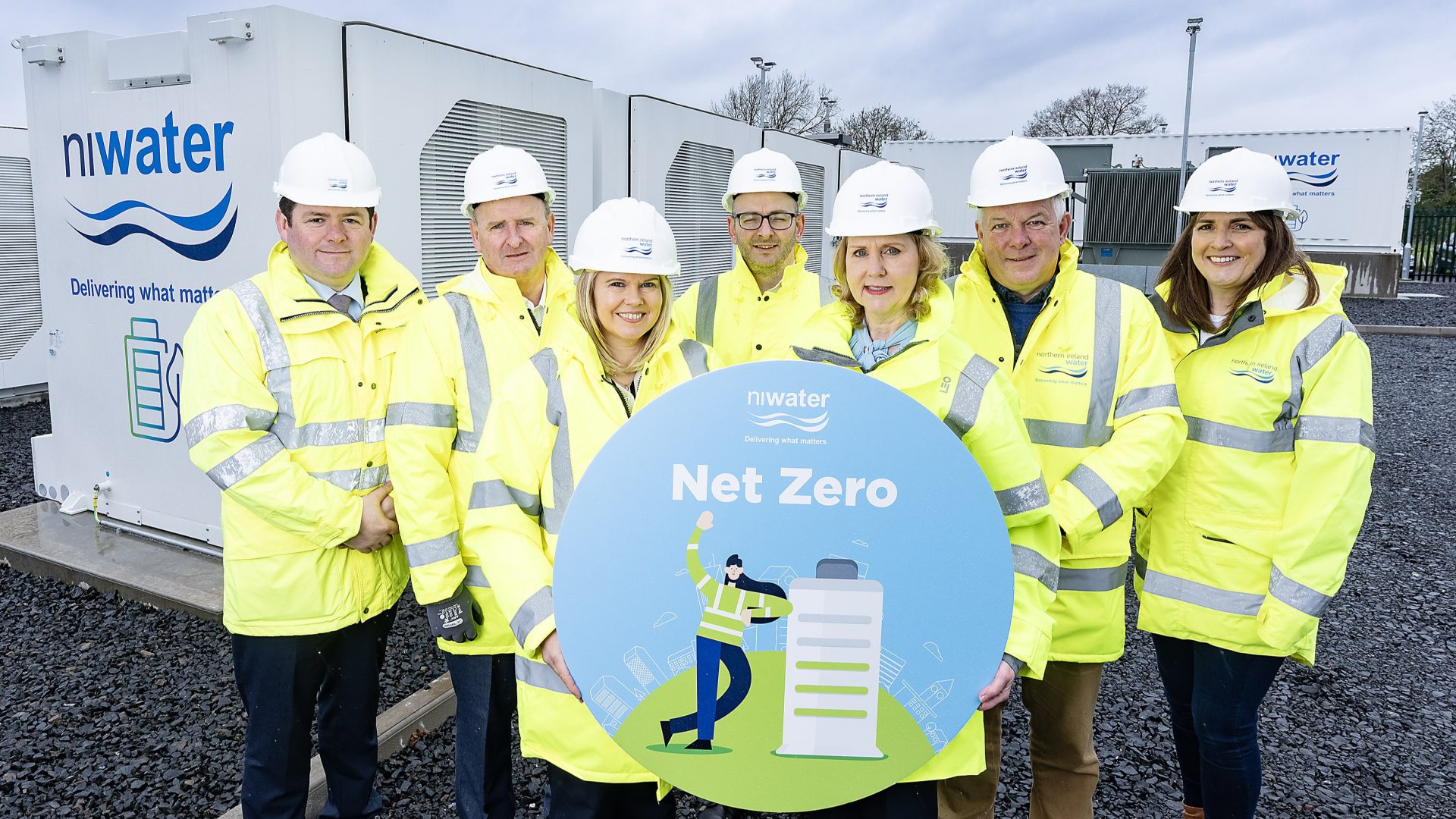Global engineering and sustainable development consultancy Arup, working collaboratively with national contractor and developer GRAHAM, were commissioned by Northern Ireland (NI) Water as technical advisor and project manager for the Dunore Point Battery Energy Storage System (BESS) Project. It is the first large-scale battery to be connected at 33kV in NI.
NI Water is set to reduce its carbon footprint after becoming one of the first public sector organisations to install a state-of-the-art battery energy storage system. The 4.1 MW battery is powered by an existing solar farm at one of NI Water’s largest water treatment plants, Dunore Point, Antrim.
The battery boasts a 5.6 MWh (megawatt hour) total capacity which helps to store surplus energy generated onsite from c.24,000 solar panels. During periods of lower electricity demand, NI Water can store this renewable energy to use later during peak times. The BESS will also engage in services to help balance supply and demand on the local grid providing improved site resilience and security of water supply. Increased use of renewable energy will contribute to mitigating the effects of climate change.
Together with GRAHAM, Arup provided technical advice and developed techno-economic modelling, planning / NIE-N connection applications, and were NEC Project Manager and Supervisor during the construction stage of the project.
Pete Gray, Associate Director, Energy, Water& Resources at Arup, commented:
“With sustainable development at the core of everything we do, Arup is excited to have supported NI Water with this first large-scale battery system in collaboration with contractor GRAHAM, their supply chain including Scotts Electrical Services, Fluence, and stakeholders such as NIE-N and SONI, leveraging our energy specialists’ technical and economic modelling expertise. This important project will contribute to NI Water’s journey to achieving Net Zero for the energy it uses by 2030.”
PJ McCaffery, Contracts Director at GRAHAM, said:
“We are delighted to have delivered this project for our long-standing client NI Water, supporting their sustainable goals of becoming more energy efficient through innovative energy projects. Collaborating closely with ARUP, NI Water, Scotts Electrical from our supply chain and NIEN, we have once again demonstrated our commitment to enhancing NI Water’s use of Green Energy and reduced carbon footprint which is essential for NI Water serving the communities of Northern Ireland. We aim to deliver a lasting impact on all our projects, by transforming and improving the built environment for the communities we serve. This project is a fantastic example of innovation and our expertise in the water sector, and we look forward to continuing our relationship with NI Water on future projects”.
The battery will provide power back to the grid when required, helping to support grid stability and provide greater resilience in the network to benefit NI society and economy, in addition to facilitating opportunities to harness further renewable technology and market participation in the future.



